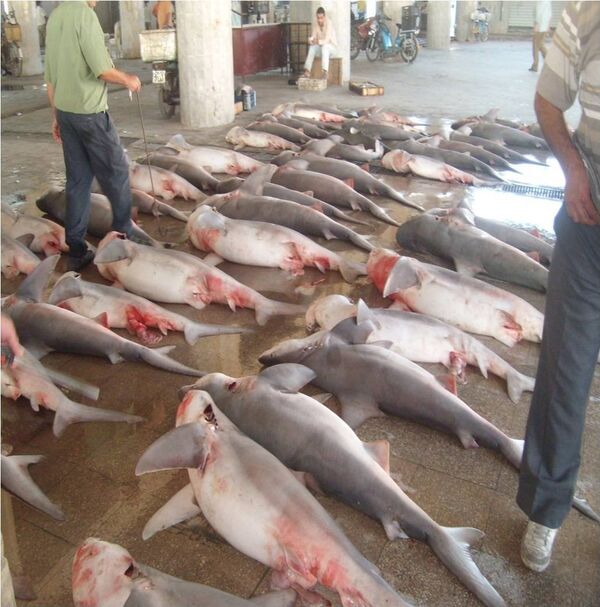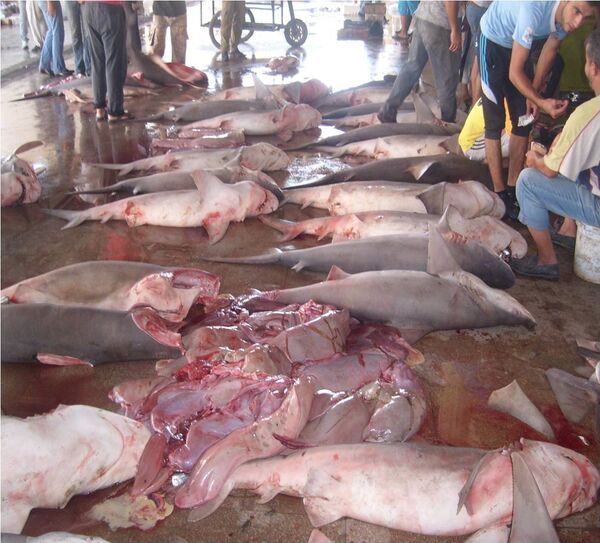In the last few years meat has become an increasingly rare and expensive commodity in Syria, in no small part due to a blockade imposed against the country. So in order to improve their diet, Syrians have turned to fish; now the average Syrian consumes about three times as much fish as before.

This development has led many environmentalists to become concerned that this increased use of biological sea resources is a reason for the drastic decline in the population of many species of fish.
Mueyna Badran, a member of the Syrian Environment Protection Society and employee of the High Institute of Marine Research, told Sputnik that many fishes native to the Syrian waters are increasingly vulnerable due to the intensive fishing and poaching.
"The cartilaginous fishes class contains 1,164 species, 41 of which were confirmed to be present in Syria in 2010; additionally, the presence of 10 more species was confirmed in the county since then, but they haven’t yet been added to an official list. These fishes are especially vulnerable due to a decrease in fertility as well as their late maturity. Also, during the last five years in order to ensure the safety of its citizens the Syrian government has allowed shark fishing, and many shortsighted young fishermen used this opportunity to engage in outright poaching. You can see the result of their actions on the fish markets of Latakia and Tartus where a great many sharks are being sold. Nothing like that has happened before," she said.

Also, according to Badran at least 3 species of sea turtles dwell in Syria, but a number of factors (poaching, pollution and the decreasing number of beaches suitable for egg laying) has caused a decline in the population of these creatures.
Furthermore, all nautical flora and fauna currently suffer from pollution, through the increasing salinity in the eastern Mediterranean Sea, and the dam construction in the region. Uncontrolled fishing and rampant poaching also cause fishes to migrate to other, more comfortable regions.

